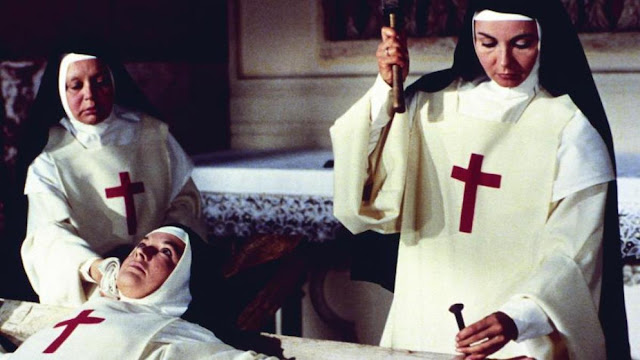The Milky Way (1969)
Luis Bunuel's "The Milky Way"
It is certainly not uncommon for Luis Bunuel to examine religion, and more specifically Catholicism, in his work. His 1969 film "The Milky Way" finds him taking these criticisms and examining them more in depth. The film follows two French beggars travelling en route to Santiago de Compostela in Spain. Along the way, they run into various heretics from various timelines. These heretics are essentially arguing and debating the various perspectives on God, Jesus, and the ideology of the Catholic faith.
"The Milky Way" is essentially a constructed prism of religious debates by Bunuel. Through this prism, we see various devotions to God, various disputes over the meaning of the sacred text, and the hypocritical nature of those who practice his word. This prism that Bunuel has constructed acts as a self-dialogue about the meaning of spirituality and the search for some sort of ground to stand on. Bunuel drew inspiration from actual historical documents. Bunuel mixes these occurrences together through his mastery of surrealism. The array of time period, perspective, and historical document creates an ever-reaching dialogue about the history and understanding of the story of Jesus and the notion of God. Bunuel even inserts Jesus into the story, showing him to be a very normal man, despite his miracles. Bunuel wanted to show Jesus as being "an ordinary man, laughing, running, mistaking his way, preparing to shave - to show, in other words, all those aspects completely alien to our traditional iconography."
Given this quote by Bunuel, it seems as though this is the thematic crux of "The Milky Way." Our interpretations of the Bible and its stories are only interpretations, and the disparity between our notions and the original intentions of these stories is presumably incredibly great. "The Milky Way" is a surrealist journey through the various disparate notions of God, Jesus, and religious faith.




Comments
Post a Comment